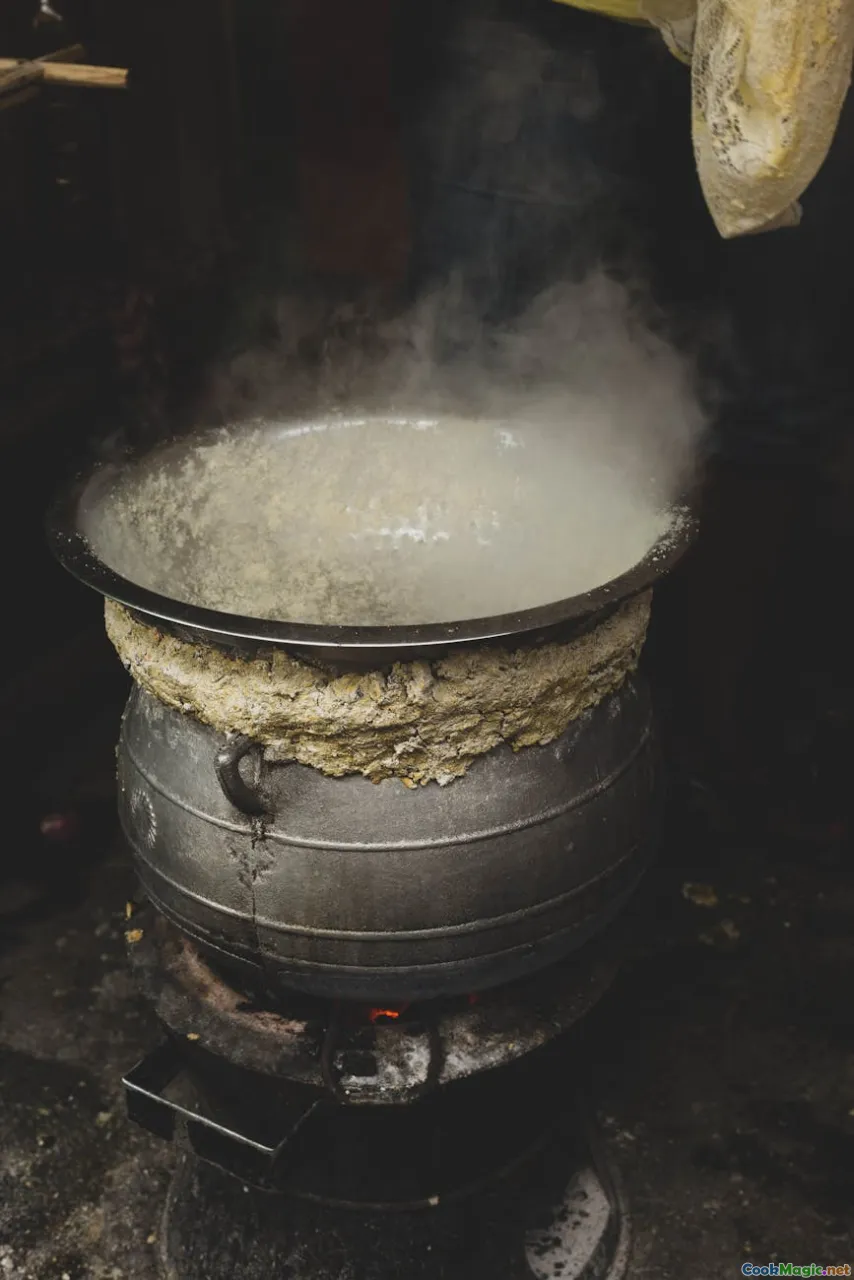Island Soups The Complexities of Goat Water
8 min read Explore the rich history, cultural significance, and culinary artistry behind Goat Water, Antigua's iconic island soup renowned for its deep flavors and communal roots. May 18, 2025 06:00
Island Soups: The Complexities of Goat Water
Imagine a bowl of steaming, savory liquid, fragrant with aromatic herbs and tender pieces of goat, simmered to perfection. This is Goat Water—a quintessential Antiguan island soup that embodies more than just nourishment; it encapsulates history, community, and culinary mastery. As an island cuisine enthusiast, I’ve always been captivated by how such a humble dish can carry such profound cultural weight.
The Heart of Antiguan Culinary Heritage
Antigua and Barbuda, with their lush landscapes and vibrant communities, boast a rich tapestry of culinary traditions rooted in African, European, and Indigenous influences. Among these, island soups like Goat Water stand out as communal dishes that bring families and neighbors together around steaming pots.
Goat Water isn’t merely a soup; it’s a celebration of local ingredients, a testimony to resourcefulness, and an expression of identity. Traditionally prepared on Sundays, during festivals, or after a hard day’s work, this dish is a symbol of resilience and shared history.
The Origins and Cultural Significance
Historically, goat meat was a readily available source of protein for enslaved Africans and early settlers. Over generations, these ingredients were transformed into hearty stews, infused with local herbs and spices. Goat Water, in particular, likely evolved from African stews and European soups, adapted to the island’s tropical climate and ingredients.
In Antigua, the act of preparing Goat Water is almost ritualistic. It involves gathering fresh goat meat—often from goats raised on local farms—cleaning, and slowly simmering it with a carefully balanced blend of herbs, vegetables, and spices. The process fosters community bonds, whether prepared in family kitchens or communal gatherings.
Anatomy of a Perfect Goat Water
Ingredients: The Building Blocks
- Goat Meat: Usually a mix of bones, shanks, and tender cuts, offering depth of flavor.
- Herbs & Spices: Pimento berries (allspice), thyme, scallions, garlic, and sometimes a hint of Scotch bonnet pepper for heat.
- Vegetables: Potatoes, carrots, yams, and sometimes dumplings made from local cornmeal.
- Liquids: Water or sometimes a light stock to enhance richness.
The Cooking Technique
The magic of Goat Water lies in patience and precision. The process begins with thoroughly cleaning the goat meat, then browning it lightly to develop flavor. The meat is then simmered slowly over low heat, allowing the flavors from the herbs and spices to meld into the tender meat.
Adding root vegetables midway ensures they absorb the savory broth while maintaining their texture. The final touch often involves a sprinkle of freshly chopped herbs and a dash of pepper. The result is a thick, flavorful broth with tender meat chunks that melt in your mouth.
Sensory Experience: Taste, Aroma, and Texture
When you ladle a bowl of Goat Water, your senses are immediately engaged. The aroma is intoxicating—a fragrant mixture of herbs, earthiness from the goat, and a faint spicy kick from Scotch bonnet peppers.
The first sip reveals a rich, savory broth that coats your palate with complex layers of flavor. The meat is fall-apart tender, infused with the spice and herbal notes. The vegetables add a contrasting sweetness and earthy texture, balancing the richness.
Visually, the vibrant hues of carrots and yams add color to the dark, comforting broth. The overall experience is both grounding and invigorating—a true reflection of island life.
Personal Reflections and Cultural Connections
I recall my first encounter with Goat Water during a local festival in Antigua. The communal kitchen was alive with chatter, laughter, and the rhythmic chopping of vegetables. As I tasted the piping hot soup, I felt an overwhelming sense of connection—not just to the culinary tradition but to the people who cherished it.
Cooking Goat Water is an act of storytelling; each ingredient echoes ancestral memories, resilience, and the island’s bounty. It’s a dish that invites sharing, conversation, and appreciation for simplicity done well.
Places and People Who Keep the Tradition Alive
In Antigua, local eateries and family-run restaurants serve some of the best Goat Water. Places like Nelson’s DockyardandCades Reef are not just scenic spots but also culinary hubs where traditional dishes are celebrated.
Many home cooks continue the tradition, passing recipes and techniques through generations. It’s not uncommon to see elders meticulously preparing the soup, imparting wisdom and love into every pot.
Variations and Modern Twists
While the classic Goat Water remains a beloved staple, contemporary chefs experiment with variations—adding coconut milk for creaminess, incorporating local herbs like basil, or using slow-cooked goat for added tenderness.
Some opt for a spicier version, elevating the heat to match the island's fiery spirit, while others create vegetarian or vegan adaptations inspired by the original flavors.
Why Goat Water Matters Today
In an era where globalization influences food choices, maintaining traditional dishes like Goat Water is vital for cultural preservation. It’s more than sustenance; it’s a narrative of heritage, identity, and community.
For visitors, tasting Goat Water offers an authentic glimpse into Antiguan life. For locals, it’s a treasured link to ancestors and a symbol of resilience.
Concluding Thoughts
Goat Water is a testament to the culinary ingenuity of the Antiguan people—a dish that’s simple in ingredients but profound in meaning. It embodies the island’s history, its connection to the land and sea, and the enduring spirit of community.
Next time you find yourself on Antigua, seek out a steaming bowl of Goat Water. Let the rich flavors and warm memories wash over you, and appreciate how this humble soup tells a story far beyond its ingredients—a story of survival, celebration, and belonging.
Embrace the complexities of Goat Water, and discover how a modest bowl can unlock centuries of cultural wisdom and island pride.









